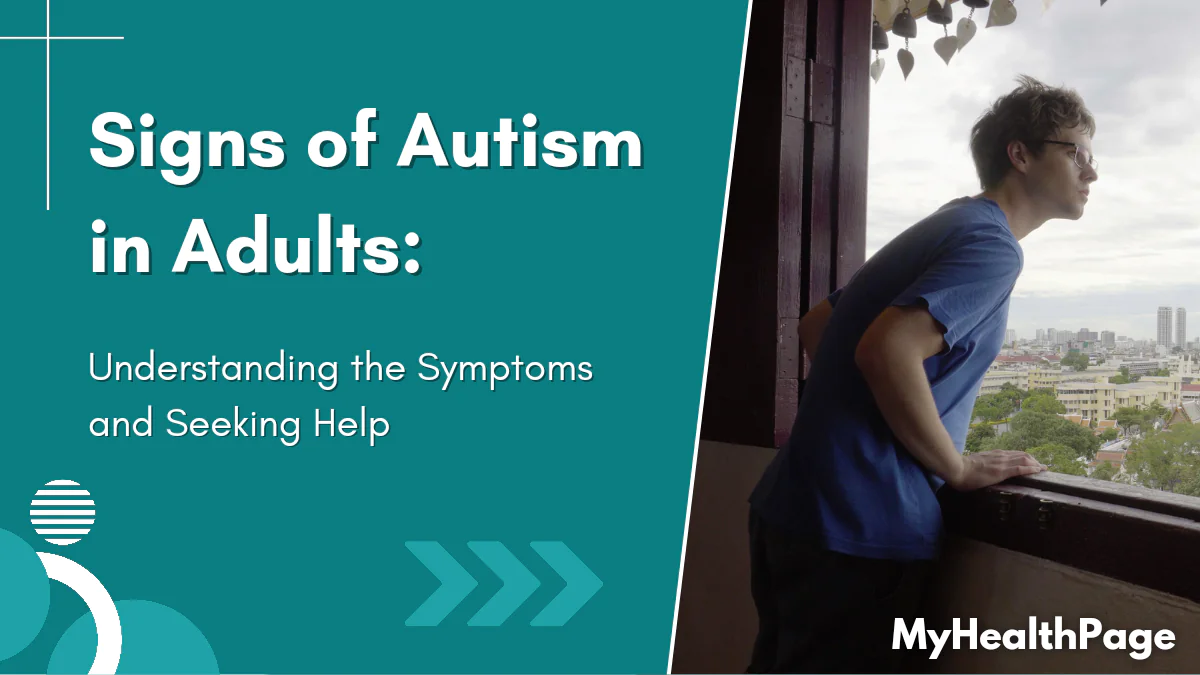Autism Spectrum Disorder (ASD) is a developmental condition that affects individuals across their lifespan. While autism is often associated with childhood, many adults remain undiagnosed, navigating life without understanding the underlying reasons for their challenges. Identifying the signs of autism in adults is crucial for self-awareness, better coping strategies, and seeking appropriate support.
This article explores the common symptoms of autism in adults, how it manifests in daily life, and the steps you can take to seek help if you recognize these traits in yourself or a loved one.
What is Autism Spectrum Disorder (ASD)?
Autism Spectrum Disorder is a lifelong condition that affects how individuals perceive and interact with the world. It influences communication, social interactions, and behavior patterns. The term “spectrum” reflects the wide range of symptoms and severity levels. Some adults with autism may lead independent lives, while others require significant support.
For detailed information on autism in adults, refer to NHS UK.
Signs of Autism in Adults
1. Difficulties with Social Interaction
Adults with autism often find social situations challenging, leading to feelings of isolation or awkwardness. Common signs include:
- Struggling to understand unwritten social rules or norms.
- Difficulty maintaining eye contact during conversations.
- Preferring solitude over group interactions.
- Trouble initiating or sustaining small talk.
2. Communication Challenges
Autism can impact the way individuals express themselves or interpret others’ words. This may manifest as:
- Speaking in a monotone or overly formal manner.
- Difficulty understanding sarcasm, idioms, or humor.
- Relying on literal interpretations of language.
- Pausing to process verbal instructions or conversations.
3. Repetitive Behaviors and Routines
Adults with autism often exhibit repetitive behaviors or a strong preference for routines. They may:
- Engage in repetitive movements like rocking or hand-flapping.
- Rely heavily on fixed schedules and become upset by disruptions.
- Display intense focus on specific interests or hobbies.
- Have repetitive speech patterns or use certain phrases frequently.
4. Sensory Sensitivities
Sensory processing differences are common in adults with autism, including:
- Being overwhelmed by bright lights, loud noises, or strong smells.
- Preferring specific textures in clothing or avoiding certain foods due to sensory sensitivities.
- Craving certain sensory inputs, such as deep pressure or repetitive sounds.
5. Difficulty with Relationships
Forming and maintaining relationships, whether platonic or romantic, can be challenging for adults with autism. Signs include:
- Difficulty understanding others’ emotions or expressing empathy.
- Struggling to adapt to the dynamics of close relationships.
- Avoiding intimacy or physical affection due to sensory discomfort.
6. Intense Focus on Interests
Many adults with autism have deep, passionate interests that may dominate their conversations or activities. While this focus can lead to expertise, it may also:
- Cause difficulty balancing other aspects of life.
- Make it challenging to engage in broader social topics.
7. Struggles with Executive Functioning
Executive functioning skills—like organizing, planning, and multitasking—may be difficult. Adults with autism may:
- Struggle to prioritize tasks or manage time effectively.
- Have difficulty transitioning between activities.
- Experience heightened anxiety when faced with complex or unexpected situations.
8. Difficulty Recognizing Autism in Themselves
Many adults remain unaware of their autism. This could be due to:
- Adapting strategies to mask symptoms, especially in social settings.
- Misattributing challenges to other factors, such as introversion or anxiety.

Common Misconceptions About Autism in Adults
1. “All adults with autism are the same.”
Autism presents differently in every individual. Some may require minimal support, while others need extensive assistance.
2. “Adults with autism can’t live independently.”
Many adults with autism lead independent, successful lives, especially when they receive appropriate support and accommodations.
3. “Autism only affects men.”
While autism diagnoses are more common in men, it’s often underdiagnosed in women due to differences in how symptoms manifest.
Seeking Help: When and How to Get Diagnosed
When to Consider an Autism Evaluation
If you recognize multiple symptoms in yourself that significantly impact your daily life or relationships, consider seeking a formal evaluation.
How to Get Diagnosed
- Speak to a Healthcare Provider: Share your concerns with a GP or mental health professional.
- Seek a Specialist: A psychologist or psychiatrist trained in autism can conduct a thorough assessment.
- Undergo Diagnostic Tests: Evaluations often involve interviews, questionnaires, and observing behaviors.
A diagnosis can provide clarity, access to support, and validation of your experiences.
Living with Autism as an Adult
1. Embracing Strengths
Adults with autism often possess unique strengths, such as attention to detail, creative thinking, and strong problem-solving skills.
2. Accessing Support
Resources like counseling, autism-friendly work environments, and peer support groups can help improve quality of life.
3. Adopting Coping Strategies
Learning tools for managing sensory sensitivities, social interactions, and time management can reduce daily challenges.
FAQs
1. Can autism be diagnosed in adulthood?
Yes, autism can be diagnosed at any age. Adult diagnoses often occur when symptoms significantly impact life or relationships.
2. What’s the benefit of getting an autism diagnosis as an adult?
A diagnosis can help you access tailored support, understand your behaviors, and connect with others who share similar experiences.
3. Are symptoms of autism in women different from men?
Yes, women often mask symptoms, leading to subtler presentations and delayed diagnoses.
4. Can adults with autism lead successful lives?
Absolutely. With the right support and self-awareness, many adults with autism achieve personal and professional success.
5. What’s the difference between autism and social anxiety?
While both can involve social challenges, autism affects a broader range of behaviors, including sensory processing and repetitive actions.
Conclusion
Understanding the signs of autism in adults is a step toward fostering self-awareness and seeking appropriate support. Autism is a spectrum, and recognizing it in yourself or a loved one can lead to improved coping strategies, better communication, and a more fulfilling life. If you suspect autism, don’t hesitate to reach out to a healthcare provider for guidance and evaluation.
For further information, visit NHS UK, which offers comprehensive resources on autism in adults.
Read Also: Effective Tips on How to Get Rid of Nausea Quickly and Naturally
Medical Disclaimer: This article is for informational purposes only and is not a substitute for professional medical advice. Always consult with a healthcare provider for personalized recommendations.
Further Reading:






